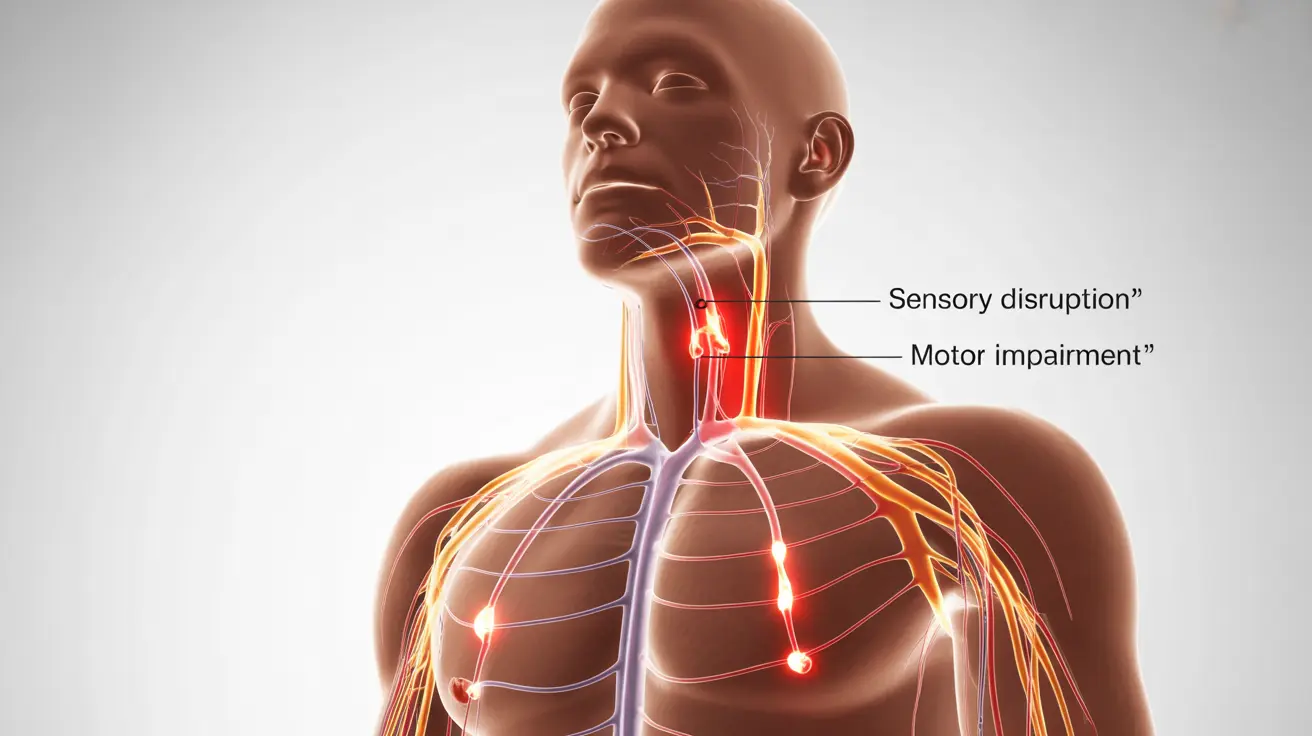Idiopathic neuropathy is a challenging neurological condition that affects the peripheral nerves without a clear underlying cause. This complex disorder can significantly impact quality of life, causing various symptoms that range from mild discomfort to severe pain and mobility issues. Understanding its symptoms, diagnosis, and management options is crucial for those affected by this condition.
While the term "idiopathic" means the exact cause is unknown, medical professionals have developed effective strategies to diagnose and manage this condition, helping patients maintain their quality of life and daily functions. This comprehensive guide explores the key aspects of idiopathic neuropathy and provides valuable insights into its management.
Understanding Idiopathic Neuropathy
Idiopathic neuropathy occurs when peripheral nerves become damaged or dysfunctional without an identifiable cause. Unlike other forms of neuropathy that may be linked to diabetes, chemotherapy, or other medical conditions, idiopathic neuropathy presents a unique challenge in terms of determining its root cause.
Common Signs and Symptoms
The symptoms of idiopathic neuropathy can vary significantly among individuals, but typically include:
- Numbness and tingling in extremities
- Burning or shooting pain
- Reduced sensitivity to temperature changes
- Muscle weakness
- Balance problems
- Decreased coordination
- Heightened sensitivity to touch
These symptoms often begin gradually and may worsen over time, particularly affecting the feet and hands first before potentially spreading to other areas of the body.
Diagnostic Process
Diagnosing idiopathic neuropathy involves a comprehensive evaluation process that typically includes:
- Detailed medical history review
- Physical examination
- Neurological tests
- Blood work to rule out other conditions
- Nerve conduction studies
- Electromyography (EMG)
- Sometimes, nerve biopsy
Treatment Approaches
Medication Options
Several medications can help manage the symptoms of idiopathic neuropathy:
- Anticonvulsants (gabapentin, pregabalin)
- Antidepressants (duloxetine, amitriptyline)
- Pain relievers
- Topical treatments
Lifestyle Modifications
Implementing certain lifestyle changes can significantly improve symptom management:
- Regular, gentle exercise
- Proper foot care
- Balanced nutrition
- Stress management
- Adequate rest
- Limited alcohol consumption
- Regular physical therapy
Living with Idiopathic Neuropathy
Daily life with idiopathic neuropathy requires adaptation and careful attention to potential risks. Key considerations include:
- Using assistive devices when necessary
- Making home modifications for safety
- Maintaining regular medical check-ups
- Joining support groups
- Practicing stress reduction techniques
- Monitoring symptoms and tracking changes
Frequently Asked Questions
What are the common symptoms of idiopathic neuropathy?
Common symptoms include numbness, tingling, burning pain in extremities, muscle weakness, balance problems, and decreased sensitivity to temperature. These symptoms typically start in the feet and hands and may progress gradually over time.
How is idiopathic neuropathy diagnosed and treated?
Diagnosis involves comprehensive neurological examinations, blood tests, nerve conduction studies, and EMG testing to rule out other conditions. Treatment typically combines medication (such as anticonvulsants or antidepressants) with lifestyle modifications and physical therapy.
Can lifestyle changes help manage the symptoms of idiopathic neuropathy?
Yes, lifestyle changes can significantly help manage symptoms. Regular gentle exercise, proper nutrition, stress management, and adequate rest can all contribute to better symptom control. Additionally, maintaining a healthy weight and avoiding alcohol can help reduce symptom severity.
What medications are typically used to treat pain associated with idiopathic neuropathy?
Common medications include anticonvulsants (such as gabapentin and pregabalin), antidepressants (duloxetine and amitriptyline), and various pain relievers. Topical treatments may also be prescribed for localized pain relief.
How does idiopathic neuropathy affect daily life and mobility?
Idiopathic neuropathy can impact daily activities through reduced balance, decreased coordination, and chronic pain. It may affect mobility, requiring adaptations in daily routines and potentially the use of assistive devices. However, with proper management strategies, many people maintain active and fulfilling lives despite these challenges.




